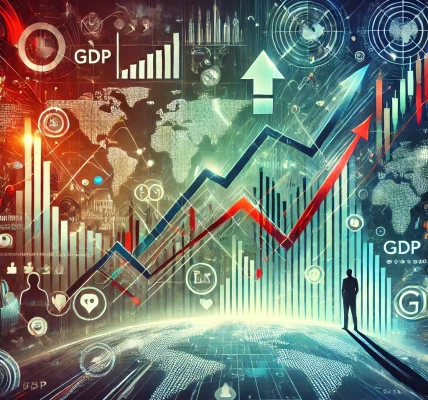Global events have a profound impact on financial markets, influencing stock prices, investor sentiment, and overall economic stability. Whether it’s a geopolitical crisis, a natural disaster, or a major policy change, understanding how these events shape market dynamics is crucial for investors. In this blog, we’ll explore the types of global events that affect financial markets, their potential consequences, and strategies to navigate the uncertainty.
Types of Global Events That Affect Financial Markets
1. Geopolitical Events
Geopolitical events, such as wars, trade conflicts, and diplomatic tensions, often create uncertainty in financial markets. For example:
- Trade Wars: Increased tariffs can disrupt global supply chains, impacting the profitability of multinational companies.
- Military Conflicts: Armed conflicts can lead to fluctuations in oil prices and heightened market volatility.
2. Economic Policies
Government actions, including interest rate changes, fiscal policies, and regulatory reforms, can influence market trends. Key examples include:
- Central Bank Decisions: Rate hikes or cuts directly affect borrowing costs and investor behavior.
- Stimulus Packages: Economic relief measures often boost market confidence.
3. Natural Disasters and Pandemics
Unexpected events like earthquakes, hurricanes, and pandemics disrupt economies by halting production, causing supply shortages, and reducing consumer spending. The COVID-19 pandemic, for instance, led to one of the most volatile periods in market history.
4. Technological Advancements
Breakthroughs in technology can disrupt entire industries, creating opportunities and challenges for investors. For example:
- Artificial Intelligence: AI adoption has reshaped sectors like healthcare and finance.
- Energy Innovations: Advancements in renewable energy impact traditional oil and gas markets.
5. Global Agreements and Disputes
International treaties, trade agreements, and disputes can also move markets. For instance, the signing of a major trade deal often leads to positive investor sentiment, while disputes can trigger sell-offs.
How Global Events Influence Financial Markets
1. Market Volatility
Global events often lead to significant price swings in the stock market. Uncertainty prompts investors to sell riskier assets like stocks and move toward safer options such as bonds or gold.
2. Sector-Specific Impacts
Certain industries are more vulnerable to specific events. For example:
- Energy markets react strongly to oil supply disruptions.
- Travel and tourism sectors are heavily affected by pandemics.
3. Currency Fluctuations
Global events can impact currency values. For example, during political instability, investors may flock to safe-haven currencies like the US dollar or Swiss franc.
4. Investor Sentiment
News about global events shapes investor confidence. Positive developments may encourage investments, while negative news often triggers panic selling.
Strategies to Navigate Market Uncertainty
1. Diversify Your Portfolio
A diversified portfolio reduces risk by spreading investments across different asset classes, sectors, and geographies.
2. Focus on Long-Term Goals
Short-term volatility caused by global events shouldn’t derail your long-term investment strategy. Stay focused on your financial objectives.
3. Stay Informed
Keep up with reliable news sources to understand the potential impact of global events on your investments. Tools like economic calendars and market analysis platforms can be valuable.
4. Invest in Safe-Haven Assets
During times of crisis, consider allocating a portion of your portfolio to safe-haven assets like gold, treasury bonds, or defensive stocks.
5. Consult Financial Experts
Work with a financial advisor to create a strategy tailored to your risk tolerance and investment goals.
Lessons from Past Events
Analyzing historical events helps us understand how markets react to crises. For instance:
- The 2008 financial crisis taught the importance of risk management.
- The COVID-19 pandemic highlighted the resilience of technology and healthcare sectors.
Final Thoughts
Global events will always play a significant role in shaping financial markets. By staying informed, diversifying investments, and maintaining a long-term perspective, you can navigate these uncertainties with confidence. Remember, while global events may cause short-term disruptions, they often create opportunities for savvy investors to capitalize on market movements.




